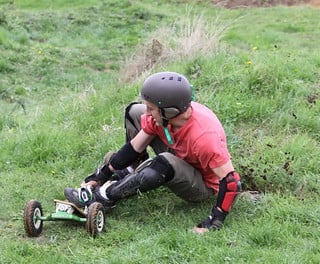The allure of the great outdoors beckons many adventurers to pack their bags and immerse themselves in the wilderness. Camping is not merely a weekend activity; it’s a journey into nature that promises serenity, learning, and a break from the monotony of urban life. However, the essence of a memorable camping experience significantly hinges on thorough preparation and meticulous campsite selection criteria. In this comprehensive guide, we will navigate through the steps of choosing the perfect campsite, setting up your tent, and ensuring your camping adventure is nothing short of remarkable.

Preparation Before Arrival
Embarking on a camping trip requires a blend of enthusiasm and preparation. Before you hit the road, understanding the regulations and facilities of your chosen campground is crucial.
- Campground Regulations and Facilities: Familiarizing yourself with the campground’s rules and amenities is the first step to a hassle-free camping adventure. Know whether the campground has potable water, the rules surrounding campfires, and the maximum group size allowed per site. Also, check for amenities like showers or flushing toilets to set your expectations right.
- Planning Your Route: Your journey begins even before you reach the campsite. Planning your route, studying maps, and identifying potential campsites are pivotal steps in ensuring a smooth camping experience.
Key Takeaways
- Familiarity with campground regulations enhances camping safety.
- Pre-trip planning aids in choosing a campsite location.
How to Choose the Perfect Campsite
The selection of a campsite is an art intertwined with a bit of science. Here are some campsite selection criteria and tips to consider:
- Terrain: A flat terrain is your best bet for a comfortable night’s sleep. Avoid low-lying areas that collect water and opt for higher ground to prevent flooding issues.
- Proximity to Water: Being near a water source is convenient, but ensure you are at least 200 feet away to protect riparian areas and to maintain a safe distance from wildlife.

How to Set Up a Tent: A Step-by-Step Guide
Setting up a tent might seem like a daunting task, especially for beginners. However, with a bit of practice and the right guidance, it becomes a breeze. Here’s a simplified campsite setup guide to get your tent up and ready:
- Select a Spot: Choose a flat spot, free from sharp objects and rocks that could puncture your tent.
- Unpack Your Tent: Lay out all the tent components – poles, stakes, rainfly, and the tent body.
- Lay Down a Tarp: Place a tarp or footprint on the ground to protect the bottom of your tent.
- Assemble the Poles: Assemble the tent poles following the instructions provided.
- Stake the Corners: Lay out the tent body, and stake the corners to the ground, ensuring it’s taut.
- Insert the Poles: Insert the poles into the corresponding holes or loops, lifting the tent as you go.
- Attach the Rainfly: Place the rainfly over the tent and secure it to the poles or the ground, depending on the design.
- Final Adjustments: Make any necessary adjustments to ensure the tent is stable, taut, and properly aligned.
Key Takeaways
- A flat, clear area is ideal for setting up your tent.
- Following the tent setup instructions and practicing beforehand will make the setup process smoother.
Campsite Setup
A well-organized campsite not only enhances your camping experience but also ensures your safety and that of the surrounding wildlife.
- Positioning Tents: Apart from selecting flat terrain, ensure your tent is positioned at a safe distance from the campfire and cooking area.
- Kitchen Area: Designate a kitchen area at least 200 feet away from water sources to prevent contamination. Keep it organized to deter wildlife.
- Food Storage: Store food in bear-resistant containers and hang it at least 10 feet off the ground and 4 feet away from the trunk of a tree to keep wildlife at bay.
Key Takeaways
- Proper tent positioning and camp organization contribute to a hassle-free camping experience.
- Essential campsite equipment includes a reliable tent, fire starter, and secure food storage solutions.
Camping in National Parks: A Comprehensive Guide
National parks are a treasure trove of natural beauty and serene campsites. However, camping in these pristine areas comes with a set of regulations to preserve the environment.
- Permits and Reservations: Check whether the national park requires camping permits or reservations in advance.
- Follow Leave No Trace Principles: Adhere to Leave No Trace principles to minimize your impact on the environment.
- Wildlife Awareness: Be aware of the wildlife in the area, and follow campsite security tips to ensure both your safety and that of the animals.
Camping Near Water: Best Lakeside Campgrounds
Camping near a serene lake offers a tranquil experience with a scenic view. Here are some considerations when selecting a lakeside campsite:
- Distance from Water: Adhere to the campsite selection criteria of maintaining a distance of at least 200 feet from the water to protect riparian habitats.
- Water Safety: Be mindful of the water conditions and adhere to safety guidelines when swimming or boating.
Beach Camping: Top Coastal Campgrounds
The sound of waves crashing on the shore and a starlit sky make beach camping a unique experience. Here are some tips:
- Sand Anchors: Use sand anchors or deeper stakes to secure your tent on a sandy terrain.
- Tide Awareness: Be aware of the tide schedules to prevent setting up your tent in a zone that might get flooded.

Camping in the Mountains: Preparing for Altitude
Mountain camping offers a majestic view but comes with its set of challenges:
- Altitude Sickness Prevention: Acclimate to higher altitudes gradually to prevent altitude sickness.
- Weather Preparations: Mountain weather can be unpredictable; ensure you have the essential campsite equipment to stay warm and dry.
Engaging in Camp Activities
- Campfire Games and Activities: A camping trip is incomplete without fun activities around the campfire.
Key Takeaways
- Camp activities enhance the camping experience and provide a chance for bonding and making memorable moments.
Glamping: A Luxurious Camping Alternative
For those who crave the outdoor experience but prefer the comforts of home, glamping is a perfect choice.
- Comfort in Wilderness: Glamping provides a luxurious stay with amenities like beds, electricity, and sometimes even Wi-Fi.
Key Takeaways
- Glamping offers a comfortable alternative to traditional camping, blending the beauty of nature with modern comforts.

Conclusion
Choosing the right campsite and setting it up correctly plays a pivotal role in ensuring a memorable camping experience. Whether you prefer the rustic charm of a secluded campsite, the serene ambiance of lakeside camping, or the luxurious comfort of a glamping site, being well-prepared and adhering to this campsite selection guide and security tips is paramount. So pack your bags, embrace the adventure, and create unforgettable memories in the heart of nature.










